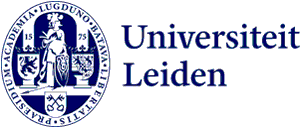
Algorithms combat environmental pollution from ships
Did you know that algorithms can help with the prevention of air pollution and ships sinking in the sea? A team of Leiden University researchers have worked together with the Dutch Ministry of Infrastructure and Water Management to look in data-driven inspection of ships. In this interview, Gerrit Jan de Bruin, a fourth year PhD student, answers questions about their recently finished research publication.

What is your research about?
'The research I am currently doing is with the Dutch Ministry of Infrastructure and Water Management. What we do is ensure that sea transportation can happen safely. Ideally, the ministry would like to check every ship entering Rotterdam on safety aspects but for that you need a lot of inspectors. Our goal is to make inspections smarter and fairer. We try to do that by making a computer program that can determine which ships are likely to be an offender, so that an inspector can go to those specific ships.
At present day, ships can try to avoid inspections by changing administrative properties. In the current model, this results in lower probability of inspection. In our work, we focus on behavior instead, which aims to make inspections more fair. It is harder for non-compliant ships to circumvent inspections.'
Could you explain more about how this computer program works?
'We are using a machine learning model that uses all kind of data. For example, for each ship, we know what routes it sailed, as this is public information. There is also data on what offenses a ship made in the past. If we combine this information into an algorithm, we can learn the probability of a ship not conforming to legislations. Our novel method also provides a solution to the general problem that AI algorithms often unintentionally discriminate. In our case this means that it prevents that ships from certain countries are selected disproportionately more than others.'

What is the value of your research in practice?
'This research is important, as thousands of ships visit the port in Rotterdam each year, potentially damaging the safety and environment of the Netherlands. There are all kinds of legislation for safety and preventing environmental pollution, but if nobody checks these, things can go horribly wrong. The algorithm that we created helps to ensure to select the most important ships, leading ultimately to a better environment.'
Do you have some examples of specific rules that the algorithm checks?
'One of the things to check during a so-called port state control is fuel quality, which is whether the fuel of a ship is clean enough to use. If the fuel is bad, air pollution can reduce the life expectancy of people living in the harbour area. Another aspect that the algorithm checks is ship safety. If a ship is not safe, it can cause collisions, and thus even sink. This can be a major environmental problem, especially if oil from the ship leaks out into the sea. So it is of utmost importance to check this. Hence, any system that makes ship inspections better has societal impact.'
To find out more about this research, you can read the latest publication in EPJ Data Science.
